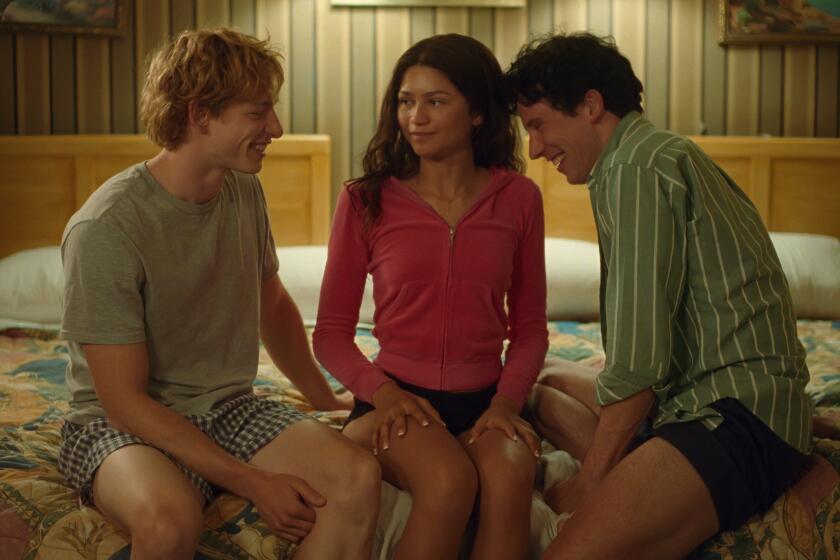Music Reviews : Second Program at Pacific Contemporary Fest
If we must have performances of new music in ghettoized situations--rather than having none at all--then the solution to repertorial choices devised by Byong-kon Kim at the first Pacific Contemporary Music Festival at Cal State Los Angeles over the weekend may be viable.
Kim’s programming of 16 works by Pacific Rim composers written during the last decade stressed diversity and a broad range of aesthetics. Each of his three programs--on paper at least--offered variety in weight, texture and style. No sampling of contemporary musical thought can be genuinely representative or comprehensive. But this one had virtues.
Sponsored by the Pacific Contemporary Music Center--which Kim founded--and performed by members and one guest of the California E.A.R. Unit, the second of these agendas brought together chamber music by Elena Katz-Chernin, Tsang-Houei Hsu, George Crumb, Toru Takemitsu, Juan Orrego-Salas and Arthur Jarvinen.
Orrego-Salas’ solo harp piece, Variations on a Chant, tickled the ear most provocatively. Written four years ago for the international harp congress in Israel, the work is based on a Jewish Yemenite tune that seems to invite retooling; this the composer does resourcefully, combining bravura display with exotic and pungent writing. The compelling performance by guest harpist Ruth Inglefield apparently hit all marks accurately.
Jarvinen’s bouncy “Egyptian Two-Step” for harmonica solo, obbligato spray cans and five other instruments, pleases through a minimalist and clever integration of disparate forces. Takemitsu’s expansive “Orion” juxtaposes aggressive lyricism with disturbing, haunting atonality; from cellist Erika Duke and pianist Lorna Elder, it received a taut and memorable performance.
One had to admire Katz-Chernin’s exercise in group percussiveness, “In Tension,” for its witty, amusing and grating presence. And Crumb’s emotionally ascendant “Idyll for the Misbegotten,” for flute solo and three percussionists, held the listener through its length despite its generalized air of pessimism.
Only Hsu’s recycled, simplistic neo-romanticism, in his Five Episodes for piano, disappointed. Gloria Cheng was the brave and stoic protagonist, but she could not save the composer from himself.
More to Read
The biggest entertainment stories
Get our big stories about Hollywood, film, television, music, arts, culture and more right in your inbox as soon as they publish.
You may occasionally receive promotional content from the Los Angeles Times.










